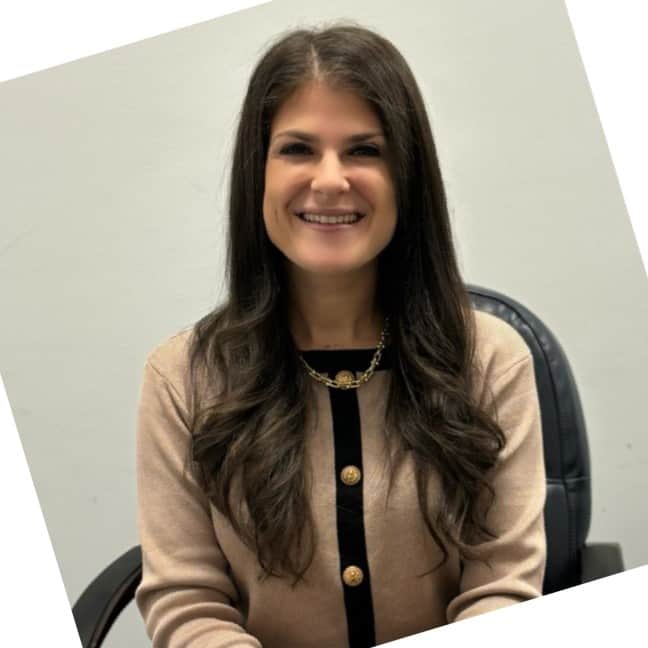Substance use and mental health disorders affect approximately 20% of Americans, contributing to significant health risks and mortality rates. Despite extensive research proving the effectiveness of psychosocial interventions, many individuals struggling with addiction and mental illness do not receive the care they need.
The Institute of Medicine (IOM) has identified a “quality chasm” in mental health and substance use treatment, where proven interventions are not consistently implemented in routine care. At Right Path Rehab, we bridge the gap between proven intervention strategies and real-world recovery. Our program focuses on helping individuals and their families navigate the challenges of addiction. Our compassionate team provides expert guidance to ensure loved ones receive their needed support.
We understand how difficult it can be to approach a loved one about seeking treatment. That’s why our experienced team is here to help you have that conversation, offering compassionate and effective intervention support. If they are willing to accept treatment, we will guide you in choosing the right level of care, whether it’s medical detox or residential inpatient treatment. At every step, we provide the expertise and reassurance you need to help your loved one start their journey toward recovery.
We’ve Helped Thousands of Individuals Overcome Drug and Alcohol Addiction
What Are Intervention Services?
Intervention services are a structured and carefully planned process where family, friends, and professionals come together to confront a loved one struggling with addiction. The goal is to help them recognize the impact of their behavior, understand that treatment is available, and encourage them to seek help.
Substance use disorders affect millions of people, yet most individuals are afraid of seeking treatment on their own. This is where an intervention becomes crucial. Unlike spontaneous conversations, an intervention is a formal, goal-oriented approach designed to break through denial and resistance.
During the intervention, loved ones share how the addiction has affected their lives, set boundaries, and present a treatment plan. If your loved one refuses to seek treatment, the family must be prepared to enforce the consequences previously discussed during the intervention.
Family members can lead interventions. However, to improve their chances of success, it is advisable to seek the guidance of a professional interventionist, doctor, or counselor.
Types of Mental Health Disorder and Substance Abuse Interventions
Because addiction and mental health challenges affect people differently, various models exist to address unique circumstances. The type of intervention used depends on the severity of the situation, the individual’s willingness to accept help, and the involvement of family and professionals. Each approach aims to support, encourage treatment, and promote long-term recovery.
Simple Intervention
A simple intervention is a one-on-one conversation between the person and a concerned loved one or professional. This type is informal and often occurs in a neutral, private setting like a home, doctor’s, or therapist’s office.
Although it is less confrontational, preparation is still essential. Consulting with a professional interventionist, addiction counselor, or therapist beforehand can increase the chances of success. Individuals are more likely to respond positively when the conversation is led by someone they respect and trust.
Simple interventions are commonly used in clinical settings, such as hospitals after an overdose, schools when substance use is suspected, or doctor’s offices after health issues arise. These brief yet impactful conversations can serve as an early wake-up call, helping individuals recognize their problems and take the first steps toward treatment.
Crisis Intervention
Crisis intervention is an immediate and urgent response to a person experiencing a severe mental health or substance use crisis. These situations often involve suicidal ideation, psychotic episodes, or dangerous behavior that poses a risk to the individual or those around them.
Crisis interventions are handled by trained San Diego professionals, including crisis intervention teams (CIT), law enforcement officers, mental health specialists, and medical personnel. Unlike structured intervention services, crisis interventions focus on stabilizing individuals and ensuring their safety.
Law enforcement and emergency responders may work alongside medical professionals to de-escalate the situation and connect the individual to appropriate treatment services. Crisis interventions often prevent hospitalization or incarceration by directing individuals toward specialized care.
Family Systemic Intervention
A family systemic intervention addresses substance abuse as a family-wide issue rather than an isolated problem within one individual. Rooted in systems theory, this approach recognizes that addiction affects and is influenced by family dynamics, relationships, and communication patterns. Instead of focusing solely on the person struggling with addiction, it involves the entire family in the healing process. It encourages all members to seek family therapy sessions, attend support groups, and learn healthier ways to interact.
This intervention model helps families break cycles of codependency, enabling behaviors, and dysfunctional patterns that contribute to the problem. It promotes open communication, accountability, and emotional support to create a more stable and understanding family environment. Involving family members improves recovery outcomes and reduces relapse rates. Addressing addiction within the family system fosters long-term healing and encourages healthier coping mechanisms.
Formal Intervention
A formal intervention follows a structured, planned approach. Family, friends, and a professional interventionist come together to confront a loved one about their substance abuse. Based on the Johnson Model, it is designed to encourage individuals to seek assistance by demonstrating the impact of their addiction on those around them. The process involves a pre-intervention meeting where participants receive guidance on communicating effectively and preparing for possible reactions.
The person struggling with addiction is typically unaware of the entire process beforehand to prevent avoidance. During the intervention, the group presents specific examples of how the addiction has negatively affected their lives, suggests treatment, and sets clear boundaries if the individual refuses help. Studies show that when conducted with professional guidance, this method significantly increases the likelihood of the person accepting treatment, making it one of the most effective approaches.
Recovery Starts at Our Drug and Alcohol Rehab by Requesting a Call
"*" indicates required fields
What Are the Goals of Intervention?

Early intervention is the first step toward healing. Individuals who receive support early in their addiction or mental health disorder are more likely to recover successfully. A well-executed intervention increases the chances of treatment acceptance and long-term sobriety.
The ultimate goal of intervention services is to encourage the person to enter treatment. However, as the National Institute of Health outlines, the intervention aims to achieve several goals contributing to this outcome. These include:
- Break Through Denial: Many individuals struggling with addiction do not believe they have a problem. An intervention helps them see the impact of their behavior.
- Demonstrate the Consequences: Loved ones explain the personal, financial, and health-related repercussions.
- Offer a Clear Path to Recovery: A structured treatment plan with clearly defined expectations and next steps is presented.
- Set Boundaries and Accountability: If the individual refuses treatment, family members commit to enforcing strategies, such as withdrawing financial support or limiting contact.
- Provide Support and Encouragement: It shows the person that they are not alone and have a network of people who care about their recovery.
How to tell if Someone Needs an Intervention
Someone struggling with addiction may not realize how serious their situation is. This is why many do not seek help for substance abuse or mental health issues. You may notice changes in their behavior or personality, but it can be hard to tell when one needs intervention services.
Recognizing harmful behaviors can help you decide when to act. Look for these signs and symptoms to determine if your loved one needs professional intervention services:
- Frequent drug or alcohol use: If alcohol or drug use becomes regular or their tolerance increases, help may be required.
- Social withdrawal: People with an addiction often distance themselves from loved ones to hide their substance use. Isolation or other behavioral problems can be a sign they need help.
- Worsening mental health: Drugs and alcohol can make mental health issues worse. Signs like paranoia, anxiety, or agitation may mean it’s time for help.
- Inability to quit: Long-term substance use can cause cravings or withdrawal. Seeking intervention services may help encourage them to seek professional assistance.
- Financial struggles: Addicts often spend most of their money on drugs or alcohol. If they start borrowing money, seek help from a certified intervention professional.
Steps Involved in an Intervention
An intervention usually follows these steps:
Planning
The first step is to carefully plan the intervention. This involves gathering information about your loved one’s substance use, understanding their specific needs, and deciding on the best approach.
Preparing Others
Interventions can be emotionally charged, and the person struggling with addiction may feel defensive, angry, or betrayed. To ensure the process remains constructive, it’s important to prepare all participants in advance. This includes educating family members and friends about addiction, setting clear goals for the intervention, and practicing what to say. A healthcare professional or interventionist can help you anticipate challenges and develop strategies to keep the conversation focused and supportive.
Gathering a Team
The intervention team typically includes close family members, friends, and sometimes professionals like therapists or interventionists. These individuals should be people who care deeply about the person struggling with addiction and are willing to participate in a constructive and supportive manner.
Giving Consequences
If the person with an addiction refuses to accept help, it’s important to establish clear and firm consequences. These consequences should be meaningful and communicated in advance. Examples might include withdrawing financial support, limiting contact, or asking them to move out until they agree to seek treatment. The purpose is not to punish but to encourage accountability and emphasize the seriousness of the situation.
Sharing
During the intervention, each team member will have the opportunity to share how the addiction has affected them personally. This should be done in a calm, non-confrontational manner, focusing on specific examples and expressing concern rather than blame. The goal is to help the person understand the real impact of their behavior on those they care about.
Presenting Treatment Options
After everyone has shared, the team presents a clear and actionable treatment plan. This plan should include specific options for rehab, family therapy, or other forms of professional help. The individual can choose to accept help immediately or take a few days to consider their decision. Either way, the team should remain supportive and prepared to follow through with the agreed-upon consequences if necessary.
Common Intervention Approaches
Here are some of the common intervention approaches:
- Confrontational Approach: This is an aggressive method. It involves direct demands for treatment, with clear repercussions for non-compliance. It is rarely effective and not recommended.
- Tough Love Intervention: A softer version of the confrontational approach, where the group meets to set goals and outcomes beforehand. Participants express concern and explain how the substance use affects them.
- Love First Approach: This approach is a gentler form of tough love. Team members write letters expressing concern, affection, and support. If assistance is refused, a backup plan with consequences is implemented.
- Johnson Model: This non-confrontational approach involves team planning sessions focusing on facts and concerns. The team presents at least three treatment options without blame or anger. Success rates are mixed, with some interventions not fully completed.
- ARISE Model: This model has three levels. Level I involves organizing the intervention and encouraging loved ones to attend meetings. Level II includes intervention meetings where the subject is encouraged to seek treatment. Level III presents serious repercussions if treatment is refused. This model is an alternative to the Johnson Model and is backed by research.
The ARISE model has empirical research to support its use. It is the model developed by the Association of Interventionist Specialists to get individuals with substance use disorders into treatment.
Tips for Staging a Successful Intervention
1. Prepare in Advance
Plan what you will say and how you will approach the conversation. Consider getting advice from a professional interventionist. Also, think about the location, time of day, tone of voice, and who should be present. The better prepared you are, the more likely the intervention will succeed.
2. Be Positive and Supportive
This is a difficult time for the person in need. Show them that you care and that your goal is to help, not to judge.
3. Stay Calm
Emotions may run high. Avoid getting angry or frustrated. A calm approach increases the chances of a positive response.
4. Set Clear Next Steps
Having a clear plan helps the person feel less overwhelmed. Explain what the next steps could be, such as therapy or counseling. You can even create a simple chart to show the process and help them see the way forward.
Get Help From Right Path Rehab
Addiction is often called a family disease because it affects not only the individual but also their loved ones. At Drug Rehab San Diego, we are passionate about helping people suffering from mental health and substance use disorders find a gratifying new life in sobriety. We’re here to provide you with the guidance and emotional support you need for recovery.
If your loved one is struggling with addiction, don’t wait to seek help. Early intervention can make a significant difference in their recovery process. Our compassionate team of certified intervention professionals is ready to assist you at every step of the way, from planning the intervention to connecting your loved one with the right treatment resources.
Take the first step toward healing today. Call us at (888) 291-7388 or fill out our confidential online contact form to speak with one of our experts. Together, we can help your loved one overcome addiction and rebuild their life.

Insurance Can Cover up to 100% of The Costs of Addiction Treatment and Mental Health Care
Did you know that insurance can cover up to 100% of the costs of addiction treatment and mental health care? Our addiction treatment center accepts most insurance plans. For a free insurance benefits check complete our confidential insurance verification form by clicking the link below.













